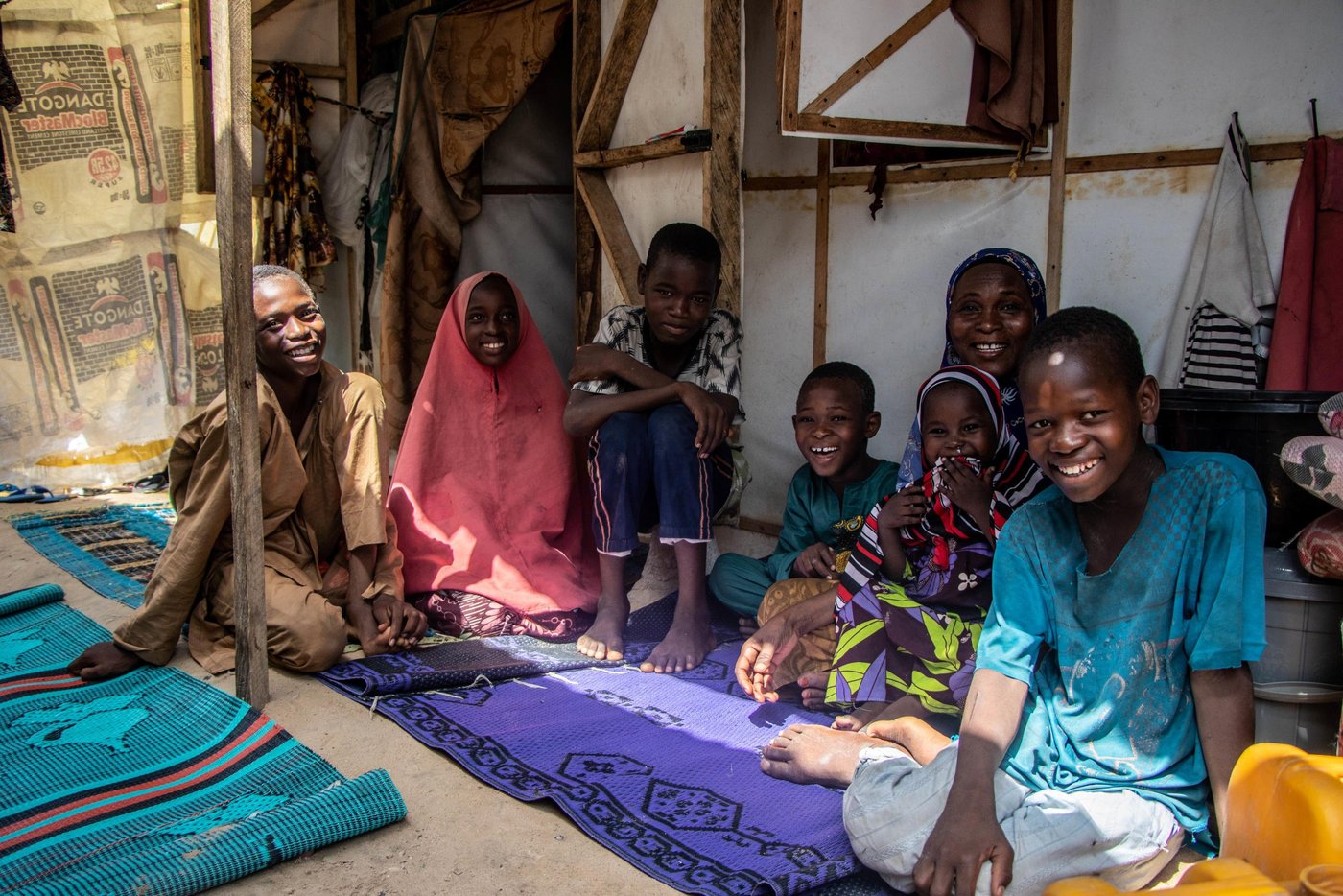Access to basic resources and services, such as water, shelter and education, has collapsed. And women and children are affected more than most. According to UN estimates, four out of five forcibly displaced people are women and children, and one in four are under the age of five.
Zara and her husband found themselves displaced by conflict in December 2014. They escaped to Maiduguri, the capital of Borno State, where they were able to rent a house and settle with their six children into a cosy space of their own.
Then one day, Zara’s husband left to buy food for their family. Zara remembers the light that morning: beaming and vividly bright. The morning light is etched in her memory as the last day she ever saw him.
There was no proper shelter, only a makeshift one made from nylons and pieces of clothingZara, displaced mother of six
Her husband, the primary earner of their family, had disappeared. Zara quickly became unable to pay rent. With no family nearby and nowhere else to turn, Zara and her six children fled again. This time not to a house, but to a homemade tent built out of whatever they could find to secure some form of protection.
“After my husband went missing, we had no option,” Zara recounts. “There was no proper shelter, only a makeshift one made from nylons and pieces of clothing. My children always cried whenever it rained and had to bear the harsh heat.”
A multi-pronged approach
Zara is among thousands who have fled to Maiduguri to live out of harm’s way. Many have constructed makeshift housing out of clothes, leaves and sticks – leaving them exposed to the weather. Gusting winds, the blistering heat of the sun and harsh downpours have left them no respite. Without proper toilets or washing facilities, there is little privacy and families are at constant risk of waterborne diseases.
Then, in 2020 the Norwegian Refugee Council (NRC) – with the generous support of the European Civil Protection and Humanitarian Aid Operations (ECHO) – committed to addressing these issues through a dynamic, multi-pronged approach. Emergency shelter, water and hygiene, education, and legal assistance were part of a package that would protect people who had sacrificed everything to keep their families safe.
Relief under a new roof
To start with, people needed a house. Our shelter team supported over 700 families by repairing their shelters or building new ones. We trained them in how to protect and maintain their shelters during flash floods, meaning they were better prepared to fight harsh weather conditions. We also rehabilitated permanent shelters that were damaged by conflict.
I have a place I can lay my head and keep my children safe. I am happy now.Zara, displaced mother of six
Once they had a roof over their heads, families were given household necessities, such as pots, spoons, soap, mosquito nets, and mattresses.
Zara says, smiling: “We were in this situation for years, until we heard that NRC was coming to build some shelter for us. We were so happy. Now, whether it rains or the sun shines, I have a place I can lay my head and keep my children safe. I am happy now.”
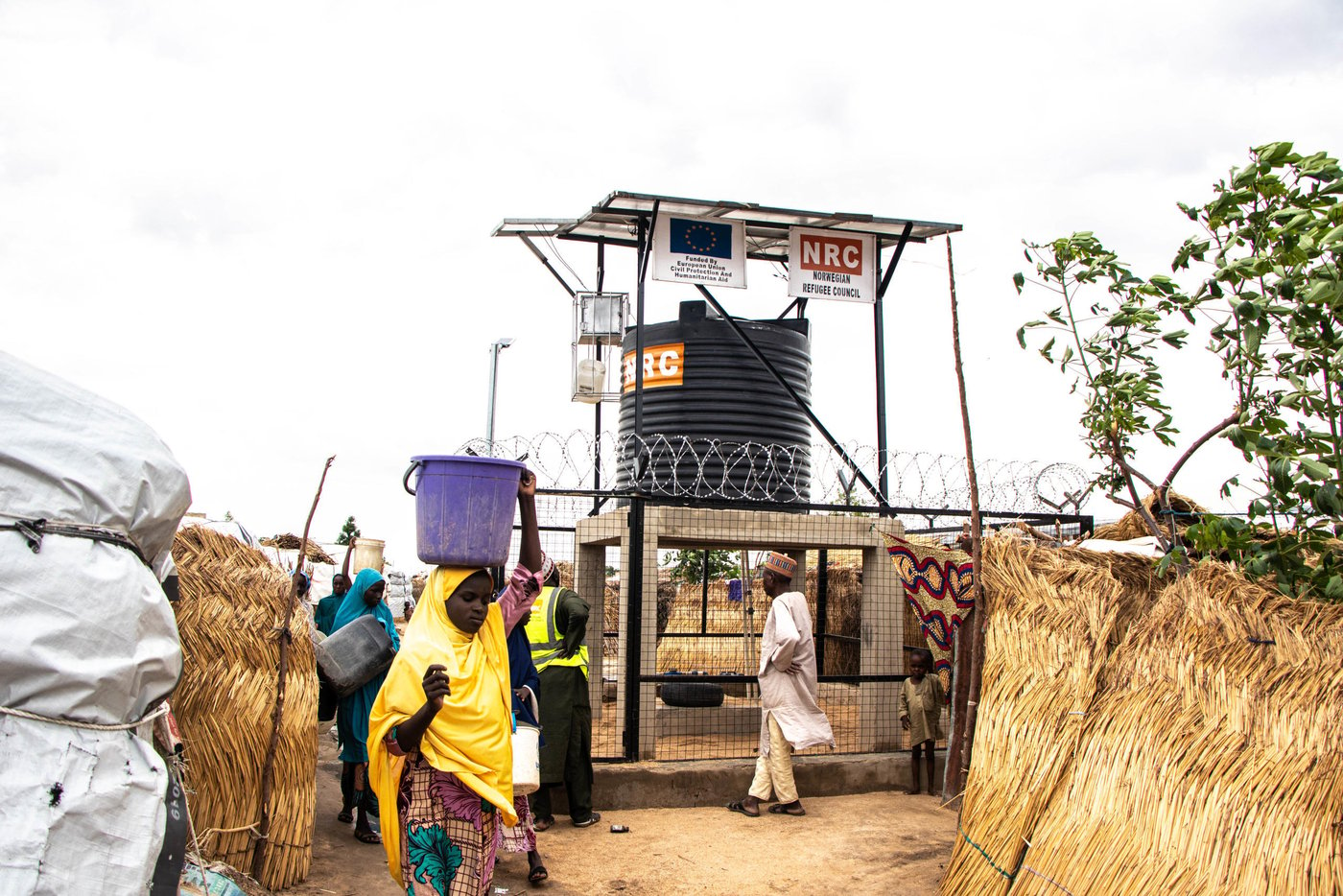
Home is where the water is
Without proper access to water, many people were forced to live in inhumane conditions.
Bulama Usman, who also lived in an informal settlement after fleeing attack from armed groups, recalls: “We had to take our baths in the open, even during harsh weather. We sometimes went for days without bathing and would look unkempt. It was not easy during these times, but there was nothing we could do: we had no water, no bathrooms and toilets.
“The water was too far away and we had to walk very long distances to get water to drink and cook with. Our children were falling ill very often. But what could we do? We could not go back home, it was not safe for us anymore.”
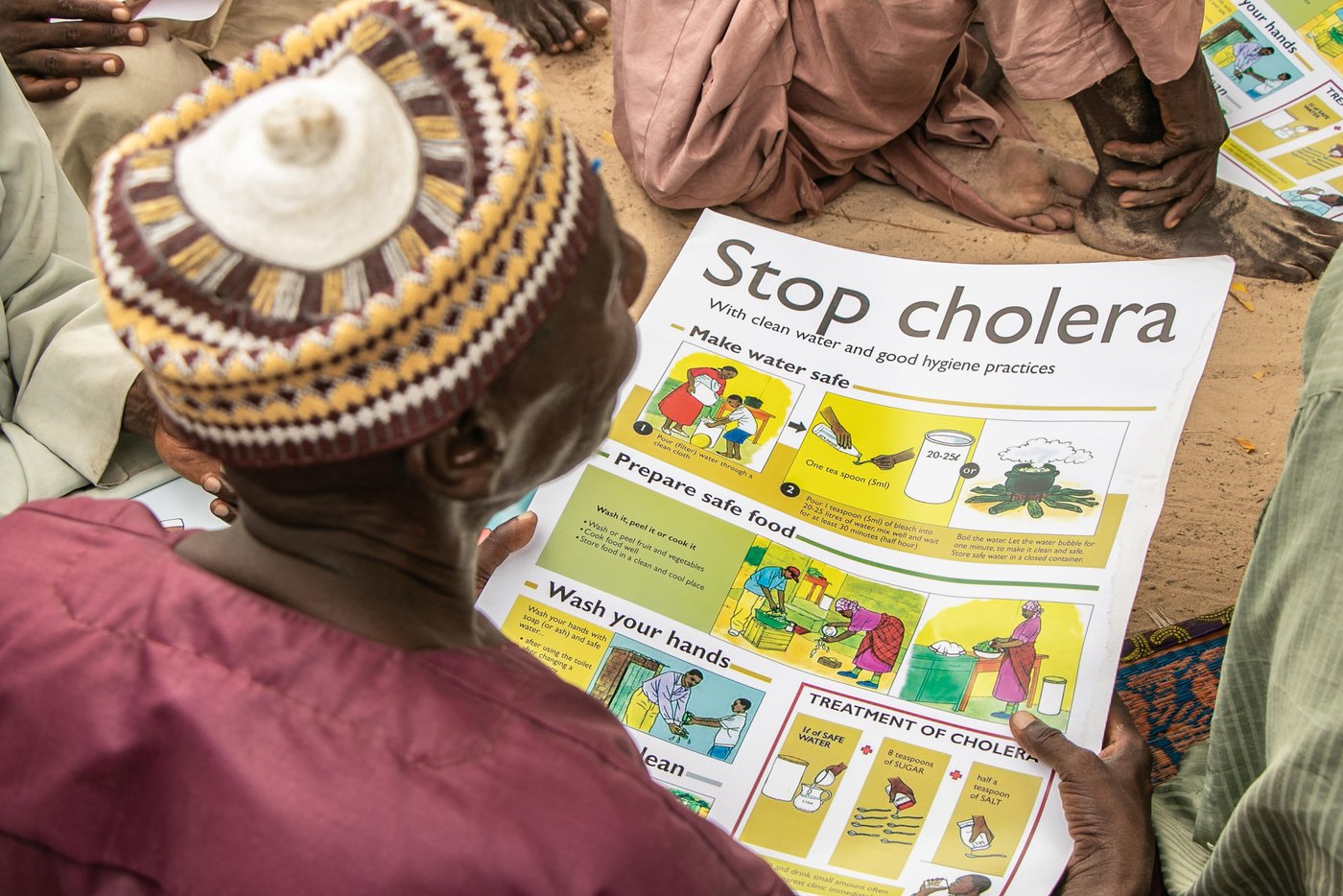
To respond to these needs, NRC constructed a borehole, ensuring that access to clean water was always easily available. Our team also provided toilets, bathrooms, and carried out hygiene training so people could protect themselves against waterborne diseases, such as cholera, and against Covid-19.
“Now things are better: we have shelter, we have toilets and bathrooms, and we have been educated on good hygiene practices,” says Bulama. “We do not have to walk long distances to cook and clean up. It is not how it was back in the homes we fled, but the situation is better and more dignified.”
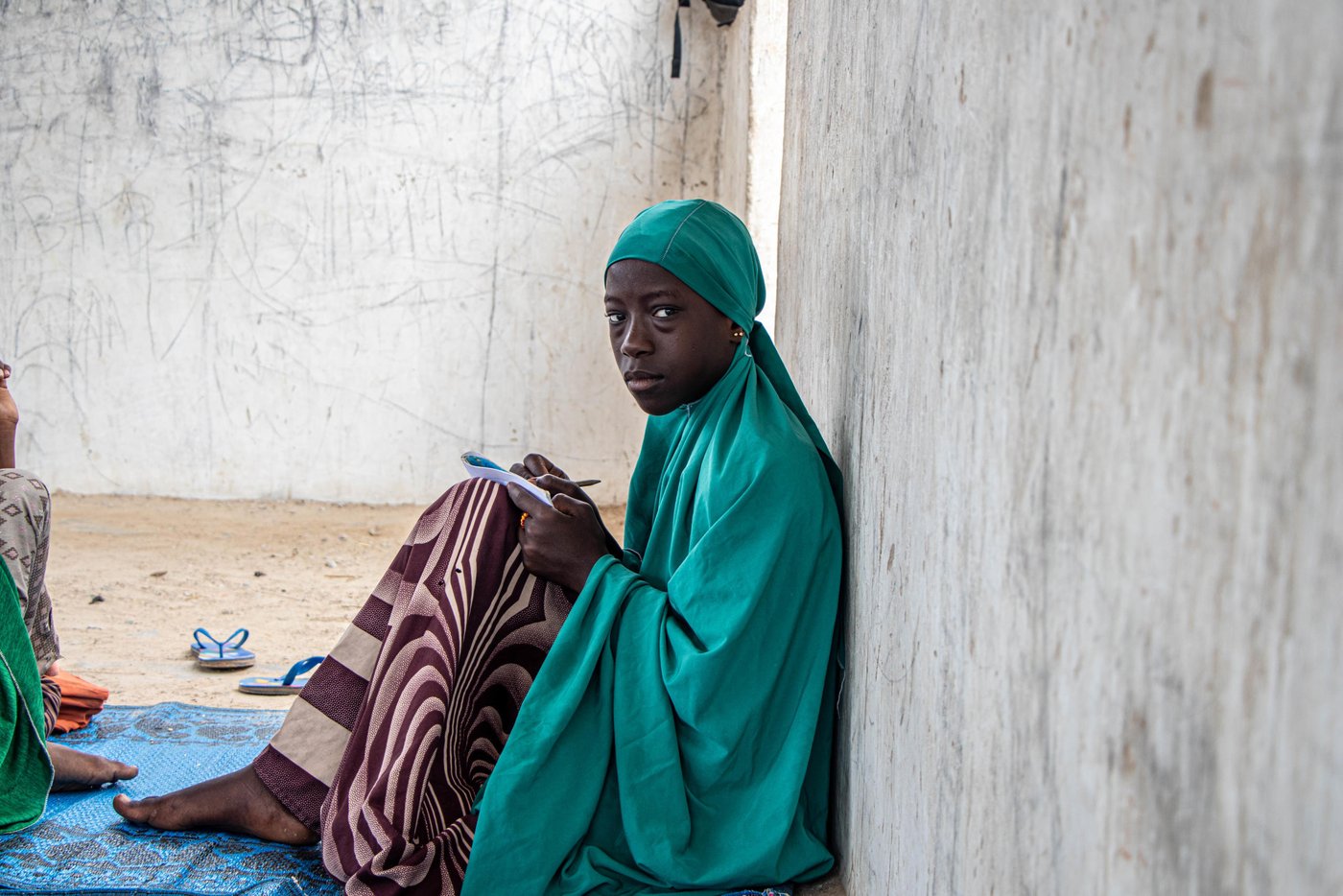
Learning is a shared passion
Hafsat, 14, had never been to a government school due to the prolonged conflict. Eager to learn, she directed her attention to studying and memorising the Qur’an.
Her mother, Meimuna, observed: “Hafsat is very passionate about anything she does. I noticed her always looking at children as they returned from school. I once asked her why she did it and she said she wanted to be like them. But we did not have enough money, her father had passed away and it was not easy taking care of all the children by myself.”
When my mum told me that she had enrolled me in the school, I was so happy!Hafsat, 14
NRC constructed 13 temporary learning centres in several camps across Maiduguri, providing education to 1,433 children who were out of school. Each child received a school bag and learning materials. Hafsat was one of them. She was excited to learn that her mom had enrolled her so she could improve her reading and writing skills.
“When my mum told me that she had enrolled me in the school, I was so happy! Now I could learn the things I had always wanted to know more about,” she says.
“I have now learnt the alphabet and I can do simple arithmetic. It makes me happy.”
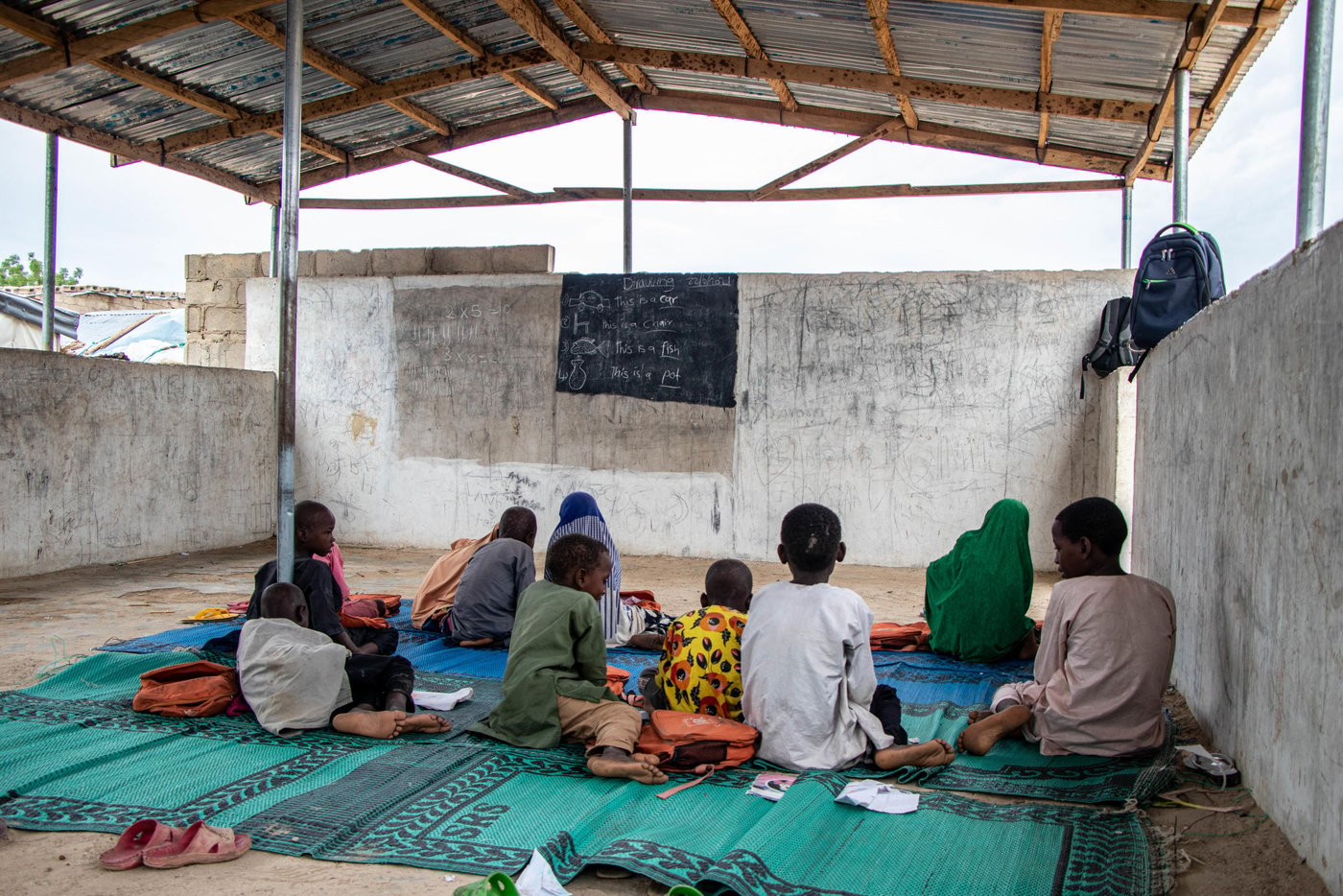
We also trained 48 teachers to teach the children numeracy and literacy skills. As a Covid-safe measure, class sizes were reduced and the learning centres began hosting two or three classes a day to include as many children as possible.
Anthony, an NRC facilitator, reports: “The children are doing very well. Hafsat is one of the best in my class and she picks up new tasks easily. For many of the children, the hope is that after we have taught them the basics, they can be enrolled in formal schools to continue learning.”
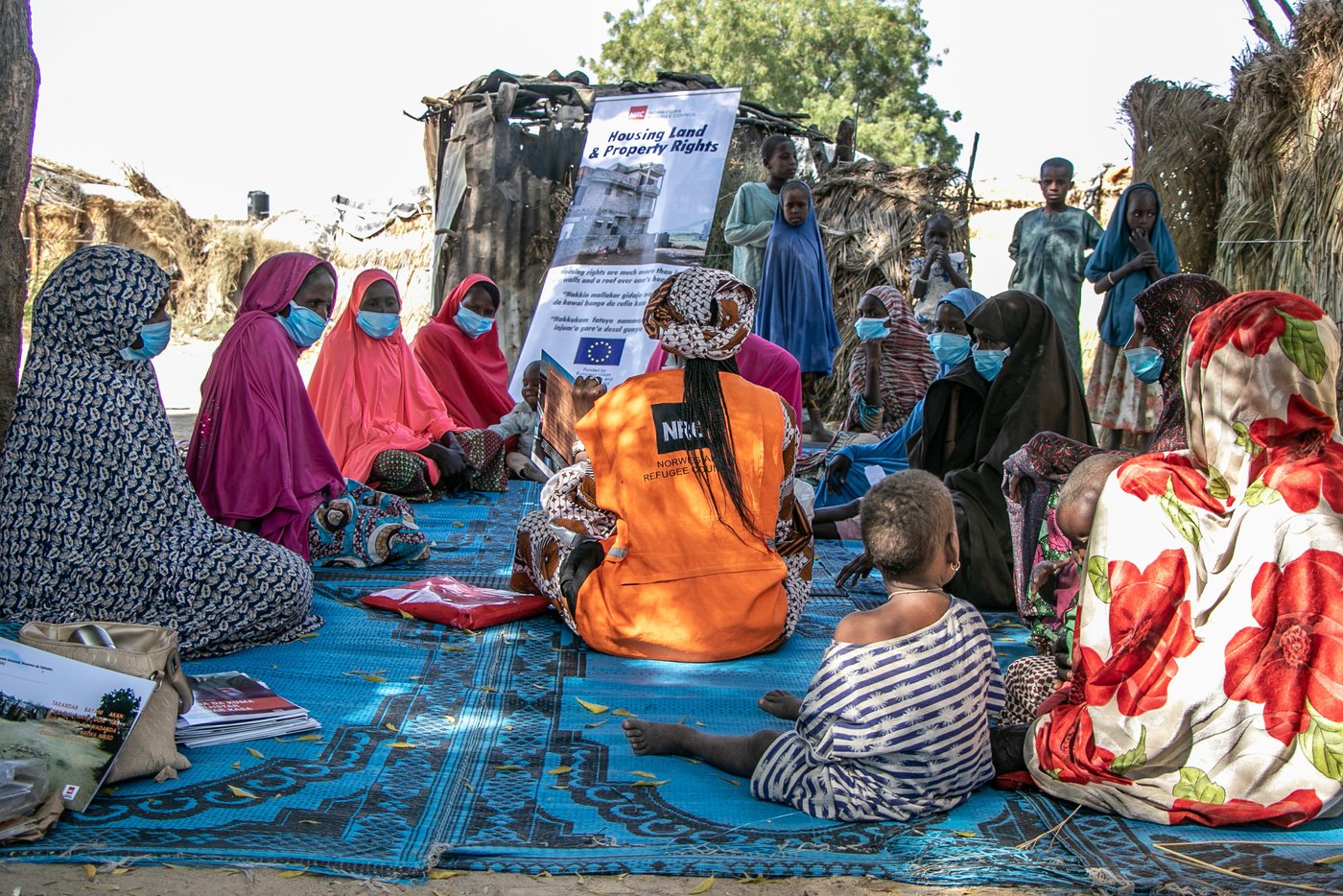
ID papers: the key to basic rights
Participating in society is difficult without the right documents: a birth certificate and an ID card. These documents are often lost or left behind when people flee from conflict. Sometimes it is even impossible to obtain them in the first place.
Without these documents, children cannot formally enrol in school and have no access to healthcare. For example, if children fall ill without a birth certificate, there is no-one to treat them. NRC collaborates with the local authorities in Maiduguri to ensure people can overcome these hurdles.
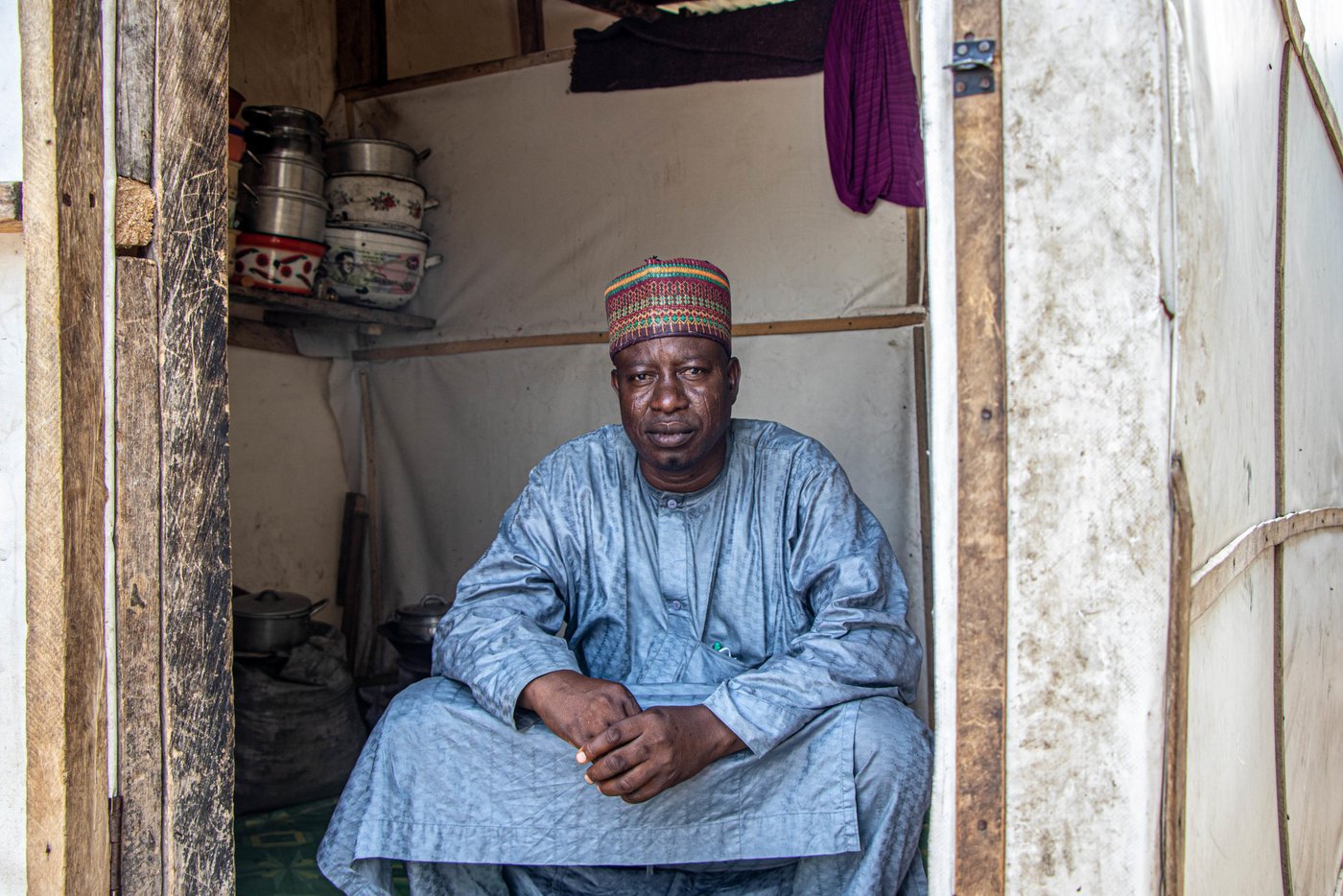
“With help from your organisation, I got certificates for all my children – all 12 of them. The younger ones are now able to get enrolled in school. I also got my national identity card,” says Bukar 45, a leader in one of the camps in Maiduguri.
ID documents also help people to be able to move freely. Babagana, 27, was displaced from his hometown in 2016. Now he lives in a shelter in Maiduguri, where he tries to earn a living by buying and selling different household items, foodstuffs and fruits. We helped him to get the documents he needed in order to travel for his business.
“I always travel to buy fish and bananas that I would sell in the town to earn some money. It was always very difficult because I could not pass through some security checkpoints,” he says.
“If you don’t have any kind of identification, you are either unable to pass, delayed, or risk being profiled as a member of an armed group. Now, I can travel without fear of being harassed.”


